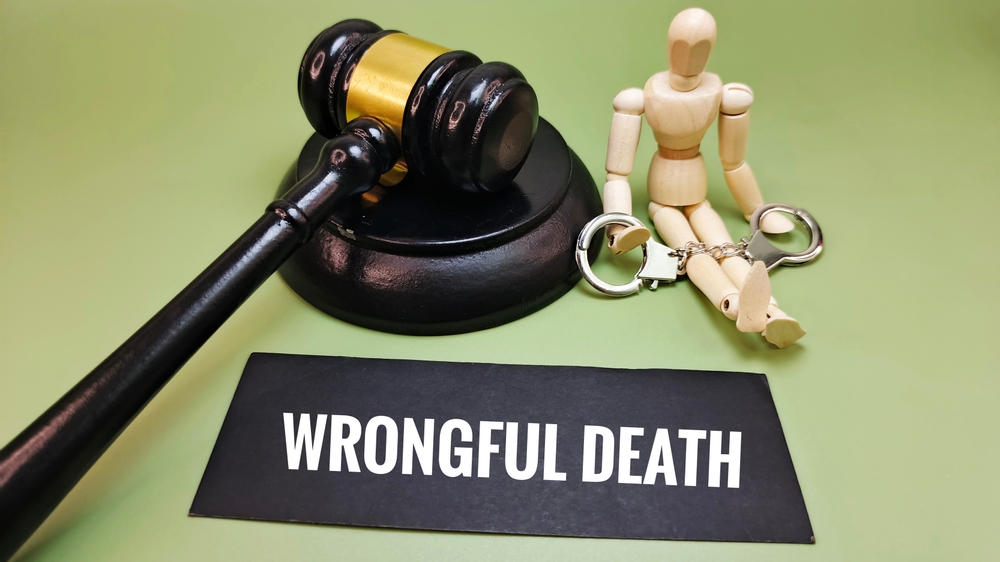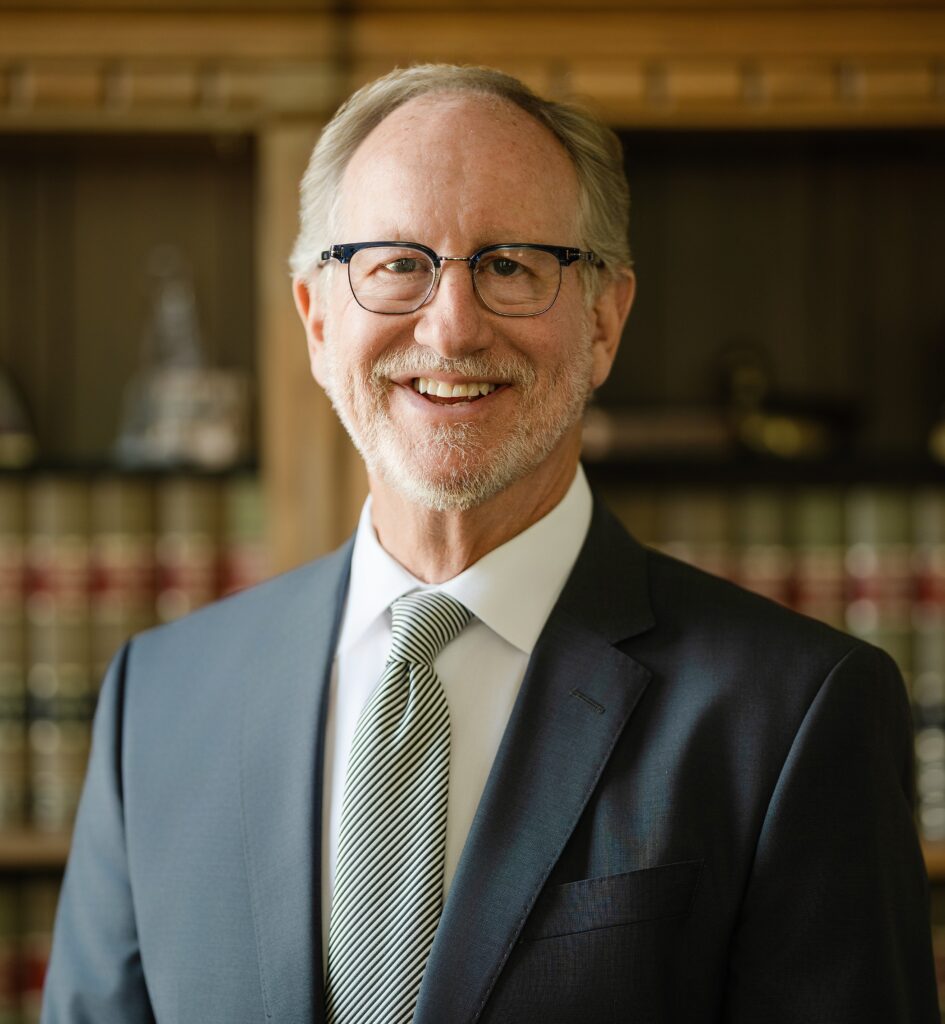
Losing a loved one is one of the most painful experiences a person can endure. When that loss is suddenly caused by someone else’s recklessness, the grief is mainly accompanied by shock, anger, and unanswered questions. You may find yourself struggling not only with the emotional impact but also with financial burdens.
It’s difficult to think about legal action during such a vulnerable time. Yet, the decisions you make in the weeks and months after a wrongful death can affect your ability to secure justice and financial stability for your family. A wrongful death lawyer will take over the whole process on your behalf and protect your family’s rights. They understand both the emotional sensitivity and the high stakes involved in these cases, and they will apply their resources to investigate and build a strong claim to pursue maximum compensation.
Schedule a Free Initial Consultation Today
A wrongful death claim is a legal action brought by surviving family members or representatives of a deceased person’s estate against the party whose negligence, recklessness, or intentional actions caused the death. It is separate from any criminal charges that may be filed, though the same incident can lead to both a criminal case and a wrongful death lawsuit. Criminal charges focus on punishment, while a wrongful death claim aims at securing financial compensation for the losses experienced by the surviving family.
Every state has laws defining when a wrongful death claim can be filed, who has the right to bring it, and what damages can be recovered. Generally, a claim is valid if it can be shown that:
Wrongful death claims can be associated with a variety of situations, including:
Sometimes, wrongful death claims may not involve just immediate fatal accidents. Wrongful death cases can also arise from incidents that result in harm that develops over time, ultimately leading to death.
For instance, a person may suffer injuries from an accident that initially seems non-fatal, but complications can ensue, resulting in death weeks, months, or even years later. In such situations, the legal dependents of the deceased have the right to launch a wrongful death claim. It means that in such claims, the timeline of harm does not diminish the validity of a wrongful death claim.

When a family sues after a loved one’s death, the lawyer assigned to the case performs many distinct functions. These roles range from immediate, hands-on investigation to long-term case management, and each one affects the strength of the claim and the speed of resolution.
Here are the many roles of an attorney after the loss of a loved one:
Most families experiencing a wrongful death have never dealt with such a case before, so they may not know their legal rights or what options are available. A wrongful death attorney starts by explaining the specific laws in your state:
Your wrongful death lawyer ensures you understand each step before it happens. They take what can feel like a maze of procedures and lay it out as a clear path so that you can make informed decisions without unnecessary stress.
To win a wrongful death case, you need to prove two key things: first, that the other party is legally responsible, and second, the financial and emotional impact of the death. Your attorney will help with this:
Because key evidence may disappear over time or be hidden by the other side, understanding when to hire a personal injury lawyer matters; hiring one early ensures the truth is collected and preserved.
The loss of a loved one affects far more than immediate expenses. A wrongful death lawyer produces a damages model with supporting exhibits that demonstrate the family’s monetary loss in concrete terms. This work is essential for presenting a credible demand to insurers or a jury. Damages in your case might include:
Your attorney may bring in economists to estimate the financial contributions the deceased would have made over a lifetime, and mental health professionals to describe the emotional consequences for surviving family members. Your attorney will then translate these technical conclusions into persuasive explanations.
After a wrongful death, insurance companies and defense lawyers mostly aim to protect their bottom line, not the grieving family’s best interests. They may try to:
An attorney acts as a shield by handling all calls, letters, and negotiations so you’re not subjected to high-pressure tactics or insensitive questions during your grief. By taking a firm approach, they can push for a settlement that reflects the cost of your loss.

While many wrongful death claims are resolved through negotiation, some must go to trial when the responsible party refuses to offer fair compensation. Trial is one of the final steps in a personal injury lawsuit, and your advocate will press for maximum recovery while advising the family on realistic outcomes and settlement trade-offs. When a settlement cannot resolve the claim, the attorney becomes the family’s advocate in court.
In court, your attorney will:
Litigation can be lengthy and stressful, but a trial lawyer handles the heavy lifting so your family can focus on grieving your lost one while still fighting for justice. Competent litigation management creates leverage in settlement and ensures your case is trial-ready if the insurer refuses a fair resolution.
The role of a wrongful death attorney involves working with families in crisis. Their work involves giving family members space to grieve while keeping them informed of legal steps. An attorney knows how to:
For many grieving families, the peace of mind that comes from having a dedicated advocate is as valuable as the compensation itself.
Wrongful death claims intersect with the deceased’s estate and beneficiaries. The attorney coordinates with the personal representative or executor to ensure claims are filed by the proper party, that probate rules are observed, and that distributions comply with statutory priorities. This role includes reconciling wrongful death recovery with surviving dependents’ claims, handling liens by medical providers, and ensuring wrongful death settlement funds are routed and disbursed lawfully. Effective coordination prevents post-settlement disputes among heirs.
If the case yields a judgment, the attorney enforces it, including locating assets, pursuing collections, and resolving appeals or post-trial motions. The lawyer also negotiates settlement implementation details, such as structured payments, trusts for minors, or lump-sum distributions. They also coordinate with financial advisors to preserve recovery for the family’s long-term needs. Enforcement after the resolution preserves the practical value of a favorable verdict.

The loss of a loved one is devastating, and no amount of legal recovery can truly make up for your grief. However, a wrongful death claim can help provide justice and secure the financial resources your family needs to move forward. At this difficult time, you should work with a wrongful death attorney who can take on the legal burdens to give you room to focus on healing. Your lawyer will gather strong evidence and negotiate aggressively for a fair outcome. Contact your lawyer immediately and secure help to pursue the justice your loved one deserves.
Schedule a Free Initial Consultation Today
Wrongful death claims seek compensation for losses suffered by the deceased person’s family. Survival actions, on the other hand, are brought on behalf of the deceased’s estate to recover damages the person could have claimed had they lived, such as medical expenses or pain and suffering before death. In some cases, both claims can be brought together, depending on state law.
The individuals entitled to share in wrongful death benefits depend on the local laws where the claim is filed. Commonly, these beneficiaries include a surviving spouse, children, and sometimes parents of the deceased. Other dependents or financial dependents, such as stepchildren or domestic partners, may also qualify. The law may prioritize some relationships over others, meaning some relatives have a stronger legal claim to compensation. An attorney can review the relevant statutes to confirm who is eligible and ensure the benefits are distributed according to the law.
Most wrongful death cases resolve through settlement negotiations before trial. A wrongful death attorney can present evidence, calculate damages, and negotiate with insurers or defendants to reach a fair settlement. However, if the parties cannot agree, the case may escalate to trial for a jury or a judge to decide.
When several relatives wish to pursue a wrongful death claim, the process must follow the laws in the state where the case is filed. In many jurisdictions, the estate’s representative initiates the claim on behalf of all the lawful beneficiaries. The court then determines how any settlement or award is distributed among the family members. This approach helps prevent conflicting lawsuits and ensures that the claim is handled in a unified manner.
Marcus & Mack
